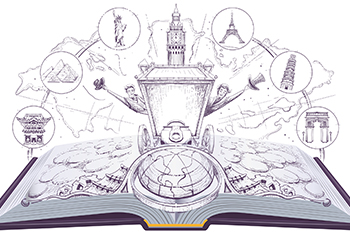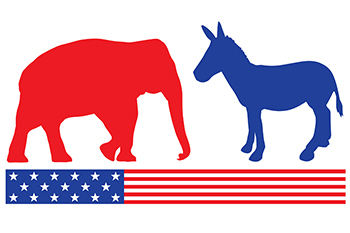Outcomes & Performance
The mission of the Macro-Social Sciences department is to provide students with a basic understanding of the human behavior from a historical, economic and political science perspective, and prepare students to contribute to society as effective and responsible citizens of their regional, national, and global communities.
Economics
Upon successful completion of coursework, students will:
- Economic theories and concepts: To understand economic theories and concepts and their applications to real world problems.
- Understand the fundamental economic question of the allocation of scarce resources.
- Apply economic reasoning to evaluate real world circumstances and current events.
- Analysis of economic issues: To develop an analytical way of solving economic issues.
- Comprehend supply and demand, and functions of market price.
- Comprehend the implications of various economic policies.
History
Upon successful completion of coursework, students will:
- Historical events and persons: Identify and describe selected historical events and persons.
- Identify who/what, when, where, and why a selected historical event or person is significant.
- Historical analysis: Analyze a historical problem, event, idea, or person.
- Analyze the significant causes of a given historical event, idea, or person.
- Judge the significance of selected historical events, ideas, or persons.
- Defend a given interpretation of history using selected examples.
Political Science
Upon successful completion of coursework, students will:
- National government: Examine, explain, and analyze the basic principles of democracy and determine whether the American political system fulfills those principles.
- Identify and explain the key principles of democracy.
- Identify and explain the implications of various outcomes of an event, idea, issue, process, or institution for democracy and society.
- Explain whether the processes and institutions of American government meet the principles of democracy.
- Identify and explain reform ideas that would allow the American government more effectively meet democratic principles
- Political influences: Analyze a political event, idea, issue, process, or institution.
- Identify and explain the various positions related to a political event, idea, issue, process, or institution, as well as their respective strengths and weaknesses.
- Identify and explain the behavior and motivations of the actors involved in an event, idea, issue, process, or institution.
- Determine the significance and importance of a political event, idea, issue, process, or institution for democracy or public policy.
- Identify and explain the implications of various outcomes of an event, idea, issue, process, or institution for democracy and society.
International Studies
Upon successful completion of coursework, students will:
- National government: Examine, explain, and analyze the basic principles of democracy and determine whether the American political system fulfills those principles.
- Identify and explain the key principles of democracy.
- Identify and explain the implications of various outcomes of an event, idea, issue, process, or institution for democracy and society.
RelatedLINKS
- Economics Current Schedule
- History Current Schedule
- Political Science Current Schedule
- Associate of Arts Transfer Pathway Guide
- Center for International Education
- Model United Nations
- Model NATO
- Phi Theta Kappa Honor Society
- American Historical Association
- Lakeland Transfer Center
- Holden University Center
- Cleveland Humanities Collaborative





